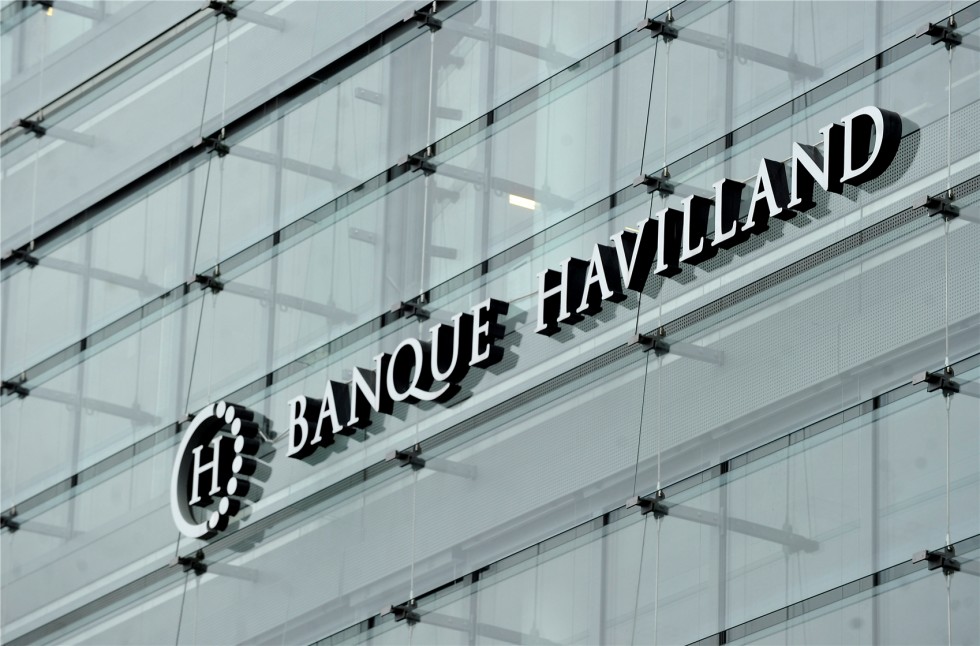The Gulf state had filed a lawsuit against UAE banks in London in 2019 for orchestrating an attack on its economy.
The UK’s financial regulator said it had warned Banque Havilland for allegedly presenting a UAE wealth fund with “improper advice” in bid to harm Qatar’s economy during the 2017 GCC crisis, Bloomberg reported on Tuesday.
The news agency said that the presentation was prepared for the chief executive of the Emirati entity and contained “manipulative trading practices” that “could be taken to harm the Qatari economy”.
“In creating and disseminating the presentation, Banque Havilland exposed itself to the risk it might be used to further financial crime,” read the British Financial Conduct Authority’s (FCA) notice, as quoted by Bloomberg.
In another report on the case, Reuters said that the warning had been issued in October 2021.
During the regional rift, Saudi Arabia, the UAE, Bahrain and Egypt imposed an illegal air, land and sea blockade on Qatar over baseless accusations that Doha was supporting terrorism—claims it vehemently denied.
At the time, banks from the UAE and Saudi Arabia had orchestrated attacks on Qatar’s economy in efforts to also damage its ability to host the highly-anticipated 2022 FIFA World Cup.
Qatar settles $100 million currency manipulation lawsuit against the UAE
Qatar took action against banks in New York and London in 2019, for launching “a campaign of financial warfare” on Doha.
The London lawsuit was filed against Luxembourg-based Banque Havilland and its former employee Vladimir Bolelyy, for attempting to manipulate the Qatari riyal.
Meanwhile, the New York lawsuit was filed against the First Abu Dhabi Bank and Saudi Arabia’s Samba Bank, over similar accusations.
A separate report published by Bloomberg in 2020 found direct links between the Abu Dhabi Crown Prince Mohammed bin Zayed, commonly known as MBZ, and Banque Havilland during the time of the GCC dispute.
The news agency found that the bank created a presentation in 2017 that had planned the manipulation strategy and was sent to MBZ by former MI6 agent, Will Tricks.
Responding to Reuters’ request for a comment on the latest developments, Banque Havilland said that “no findings have been made by the FCA” and it is currently challenging the matters raised in the warning notice statement (WNS) through the British financial regulator’s internal process.
The bank added that none of the individuals the regulator referred to remained at Banque Havilland, which also denied attempting to harm Qatar’s economy.
Since the signing of the Al-Ula declaration on 5 January, 2021, the former blockading quartet restored their diplomatic ties with Qatar.
Doha has since dropped a number of lawsuits it had filed against the countries involved in the blockade.
In January 2022, Qatar reportedly settled a lawsuit it had filed against the Emirates NBD Bank PJSC and Abu Dhabi Commercial Bank PJSC in November 2020, over claims that both entities attempted to devalue its local currency during the regional rift.
The case against the two UAE-based banks were separate from the one regarding Banque Havilland, with an absence of public statements by both the Qatari and the Emirati side on the matter.
Whilst no further details were made public over the Banque Havilland case, a lawyer for Qatar told Bloomberg, in January, that it was settled “on a confidential basis”.
______________________________________________
Follow Doha News on Twitter, Instagram, Facebook and Youtube







